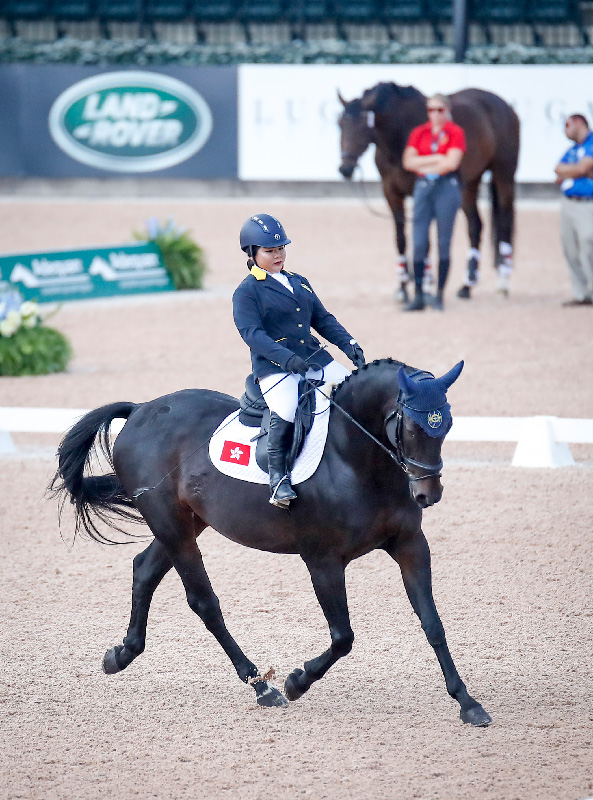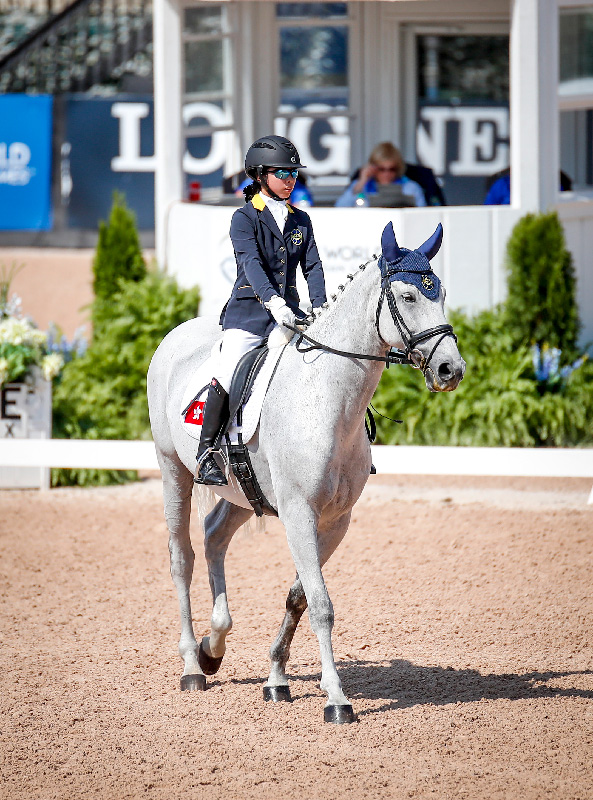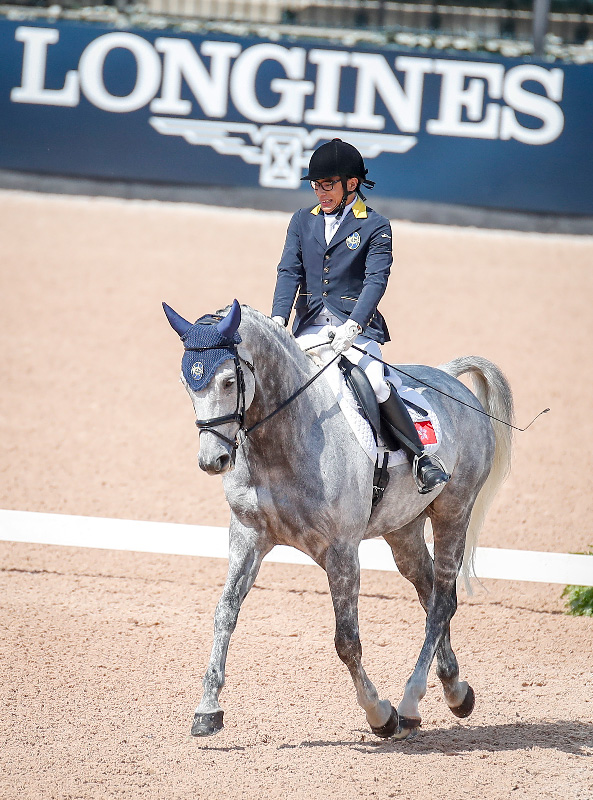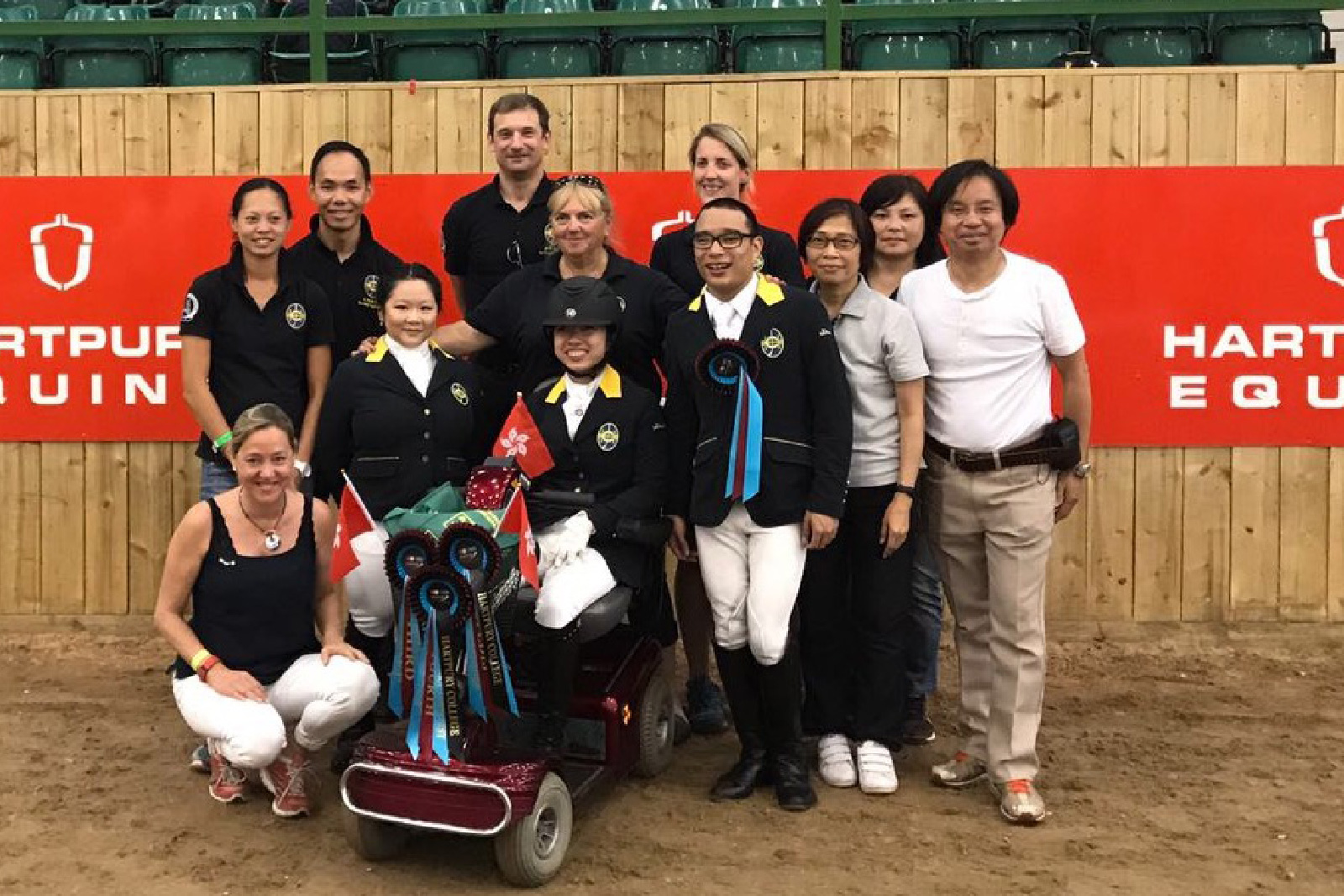Horse riding is a unique form of exercise and rehabilitation for disabled people. Research and experience have proved that the complex movement of the horse greatly helps to improve the coordination, balance, muscular development and fitness of people with disabilities. Riding also helps disabled people to develop mentally and emotionally. Horse riding and horse related activities assist greatly and often dramatically in the development and restoration of personal confidence, self-esteem, communication skills, leadership and trust.
All athletes are graded depending on their impairment, ranging from I to V. Their individual grading decides which dressage test they will perform. Dressage tests are conducted in a 20 x 40m dressage arena for Grades I to IV, and a 20 x 60m arena for Grade V riders.
The Paralympic Games began in 1960 and run directly after the Summer Olympic Games and the Winter Games respectively.
Para Dressage and Para Driving are the two para-equestrian events sanctioned by the FEI, with equestrianism being added to the Paralympic Games in 1996. Para Dressage was one of the 23 sports that featured in the Tokyo 2020 Paralympic Games, in which eleven events were available. Both team and individual winners in all 5 Grades were awarded.
Hong Kong has three Para Dressage riders: Fleur Schrader, Natasha Tse and Timothy Tsang, who train at Tuen Mun Public Riding School. They have travelled abroad all over Europe to compete in a variety of competitions and have earned the minimum eligibility requirements (MER) for the Tokyo Paralympic Games. Fleur and Natasha also succesfully completed their Paralympic journey in August 2021.











_s.jpg)

